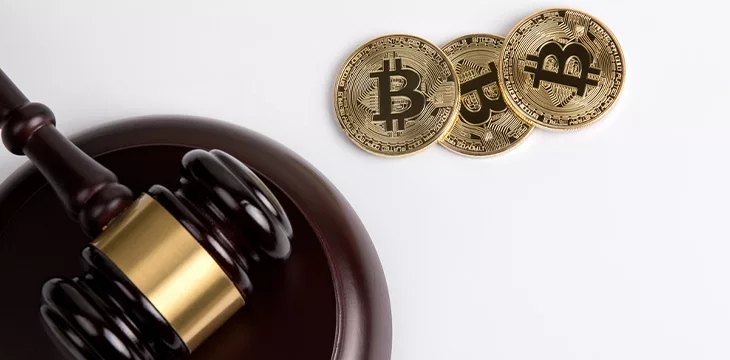|
Getting your Trinity Audio player ready...
|
Tulip Trading Limited (TTL) will have to prove it owns a trove of 110,000 BTC at a preliminary issue trial in 2025, the High Court has ruled. The coins are at the heart of Tulip Trading’s landmark case against blockchain developers of BTC, BCH BCHABC and, formerly, BSV.
Tulip Trading, which is owned by Dr. Craig Wright and lost access to the coins following a hack on his home in 2020, is arguing that developers of blockchains owe fiduciary and common law duties to owners of digital assets in large part due to the highly centralized nature of blockchain development. These duties, argues TTL, compel the developers to restore access over lost or stolen digital assets to their legal owners.
Now, before the Court gets into the nuances of digital asset technology and how the law on duties applies, TTL will have to prove it owns the coins in question. All in all, the preliminary issue trial will address five key questions:
- Can and/or should the Court determine and/or declare whether TTL is the “owner” of the digital assets in the addresses;
- Does TTL own, and did it own at the time of the alleged hack, the digital assets in the addresses;
- Did TTL commence these proceedings knowing that it does not own the Bitcoin in the addresses?
- Is the claim brought by TTL fraudulent and an abuse of process?
- Did the hack occur and deprive TTL of the private keys and the material needed to access those keys?
The trial is estimated to take 15 working days.
Proving ownership of the assets may prove more difficult than many would expect: for instance, according to Dr. Wright’s initial witness statement, the coins in the 1Feex address were purchased at a now-defunct digital asset exchange based in Russia way back in 2011.
However, it should also be mentioned that TTL’s claim of ownership has already been tested rather rigorously. In 2021, the company put out a notice in the Financial Times as ordered by the court, asserting ownership of the coins in question and inviting any potential competing claimants to identify themselves. None did. The two most likely reasons for this are because TTL does in fact own the coins, or the true owner of billions of dollars’ worth of digital assets is idly watching by as TTL lays claim to their fortune.
Assuming TTL successfully proves its ownership of the coins, there will then be a future trial on the issue of which duties blockchain developers owe to their users. This is an enormously significant case for the digital asset industry: developers have largely managed to avoid any legal liability arising from their control of vast blockchain networks which govern trillions of dollars in value. The law on duties, on the other hand, is a well-developed area of law which is used to applying old duties to new sets of facts. Additionally, there is a solid base of academic support that these old duties—such as fiduciary duties—should apply to digital asset developers. All that needs to happen is a test case—just like this one—to give the courts the chance to agree.
The interesting point in Tulip is that the action of the developers in rejecting action to recover assets places them in a fiduciary duty.
By sitting in judgement of ownership, they prove the point that they are centralised in controlling entities who are BTC fiduciaries. They…
— Dr Craig S Wright (@Dr_CSWright) December 6, 2023
And the courts themselves have already agreed, to a degree. The Court of Appeal, the second-highest court in the United Kingdom, reviewed the case in February. They had to determine if, based on TTL’s argument, the case had a realistic prospect of success at trial. The Court—consisting of three senior appellate judges—ruled that it did. Further, they said this:
“…there is, it seems to me, a realistic argument along the following lines. The developers of a given network are a sufficiently well defined group to be capable of being subject to fiduciary duties. Viewed objectively the developers have undertaken a role which involves making discretionary decisions and exercising power for and on behalf of other people, in relation to property owned by those other people. That property has been entrusted into the care of the developers. The developers therefore are fiduciaries. The essence of that duty is single minded loyalty to the users of bitcoin software. The content of the duties includes a duty not to act in their own self interest and also involves a duty to act in positive ways in certain circumstances. It may also, realistically, include a duty to act to introduce code so that an owner’s bitcoin can be transferred to safety in the circumstances alleged by Tulip.”
In other words, it’s a sound legal argument that deserves the benefit of a full trial. Now, however, that legal argument will be put on the backburner while TTL seeks to prove it owns the stolen coins.
Watch: Freezing and seizing lost and stolen assets

 07-06-2025
07-06-2025 





